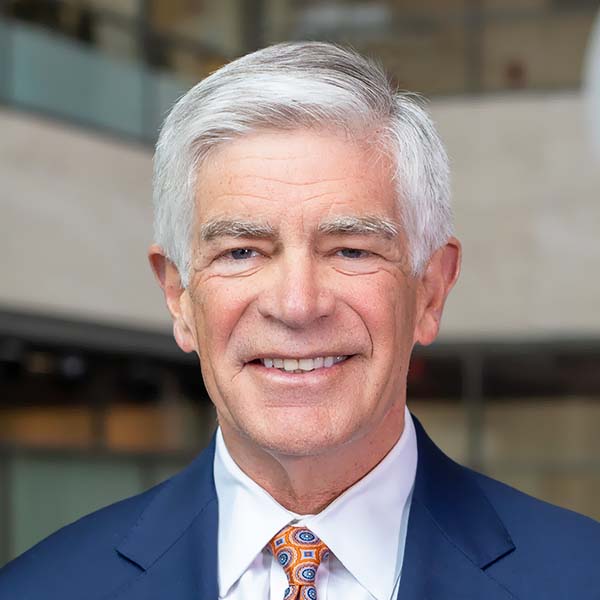Good afternoon and welcome! It’s an honor to be here at this, the Federal Reserve’s sixth virtual session on racism and the economy. This series, sponsored by all 12 Reserve Banks, examines the economic impact of structural racism and advances bold ideas and concrete actions to achieve an economy that makes opportunity available to everyone and that achieves maximum employment. I’m thrilled to be here and delighted that we have such a robust turnout — an indication of how urgent this issue is.
But before we begin, I have to give you my standard Fed disclaimer: The views I express today are my own and do not necessarily reflect those of anyone else on the Federal Open Market Committee or in the Federal Reserve System.
The tragic events of last year threw our country’s tortured relationship with racism into stark relief. The COVID-19 crisis, in both its health and economic effects, disproportionately impacted people and communities of color. And the death of George Floyd spurred civil unrest that illuminated the structural racism that remains stubbornly pervasive in our society.
But even though last year’s events brought structural racism to the forefront of the country’s consciousness, they were hardly novel. They were instead part of a long and painful history that has indelibly stained American history.
Indeed, we are convening one day after the 100-year anniversary of the Tulsa Race Massacre, an act of racial terrorism in which a White mob destroyed a thriving Black neighborhood — “the Black Wall Street” — in that Oklahoma city.
In addition to the lives lost, the Tulsa massacre destroyed scores of small businesses, which are the focus of today’s vitally important session. Entrepreneurship and small business ownership provide opportunities for Americans to generate wealth and build thriving communities. They are also an essential plank in building an equitable workforce recovery from the COVID-19 pandemic and an economy that works for all Americans.
Small businesses are drivers of job growth. As of 2018, there were more than 30 million American small businesses, meaning they employ fewer than 500 people. Those small businesses collectively employ nearly 60 million people or about half of the country’s private workforce.
And crucially, small businesses can be an engine for building a more racially equitable economy: More than 8 million small businesses are owned by racial minorities. Here in Philadelphia, we are particularly sensitive to the concerns of these vital businesses. In Philadelphia — the nation’s largest predominantly Black city — fully 99.7 percent of businesses are small businesses.
But let’s be honest. These statistics, impressive as they are, belie the very real structural barriers that stymie entrepreneurship among racial and ethnic minorities. For instance, despite its large African American population, only 6 percent of small businesses here in Philadelphia are helmed by Black owners and that includes sole proprietorships.
One real problem is a lack of banking relationships. This became painfully obvious during the administration of the CARES Act’s PPP loans, which were largely funneled through preexisting relationships between lenders and business owners. PPP loans have been a vital lifeline for small businesses during the pandemic as local governments shuttered businesses and consumers stayed home.
But they weren’t distributed equitably. In fact, not even close.
According to data submitted by applicants to the Small Business Administration, which managed the program, during the height of the pandemic, fully 83 percent of PPP loans went to businesses owned by White entrepreneurs. Black business owners, by contrast, received only 1.9 percent of the loans issued. A separate study found that, not only did Black business owners apply for PPP loans at a lower rate than other groups, their applications were also turned down at higher rates — even when controlling for revenue and credit.
It’s clear that profound structural barriers are limiting minority entrepreneurs from accessing capital.
All too often shut out from traditional lenders offering favorable rates, Black business owners are forced to turn to predatory lenders. That means that money that could be spent on buying goods and services, renting storefronts, or hiring workers goes toward interest payments. And the entire economy suffers for it.
There are exciting and important efforts afoot to redress these disparities, which is one of the reasons today’s session is so important. CDFIs, for instance, are a crucial tool for channeling capital into minority communities. And new venture capital funds that focus specifically on minority-owned businesses are another exciting development.
But piecemeal efforts cannot — and will not — be the entire solution to this problem.
It will take all of us — state and local governments, the banking community, and, yes, the Federal Reserve — to break down these barriers and build an equitable and durable economic recovery.
For our part, at the Philadelphia Fed, we are launching our 2021 Reinventing Our Communities cohort program, in which community cohorts in nine cities across the country will work together to frame, contextualize, and organize in order to spark an equitable small business recovery and to strengthen support for small business owners of color.
Our hope is that through peer learning the Fed will provide communities with the tools to identify structural racism and then create a plan to address it tailored to where they are.
Now, you’re about to hear from a series of speakers who will illuminate racism’s effect on minority entrepreneurs — and this is crucial — on how we can work creatively and urgently to disrupt the status quo.
Dr. Robert E. Weems Jr., a distinguished professor of business history at Wichita State University and our keynote speaker, will share his insights on impediments to minority small business owners and solutions to overcome them.
Our disrupters panel, featuring three dynamic leaders, will pitch and interrogate radical solutions for addressing racism in entrepreneurship.
And then we’ll hear from three entrepreneur/activists, who will reflect on the solutions discussed and the implications for their real-life experiences as businesspeople.
Finally, you’ll hear reflections from my colleagues, the Reserve Bank presidents from Dallas, Chicago, and Atlanta, to reflect on what we heard today.
I’m really excited about today’s program.
So, again, thank you for joining us today. And now, let me turn things over to my Fed colleague Neel Kashkari who will introduce Dr. Weems. Neel?
- The views expressed here are the speaker’s own and do not necessarily reflect those of anyone else in the Federal Reserve System.
Note: This speech was prerecorded for the Racism and the Economy: Focus on Entrepreneurship event.
View the Full Speech
